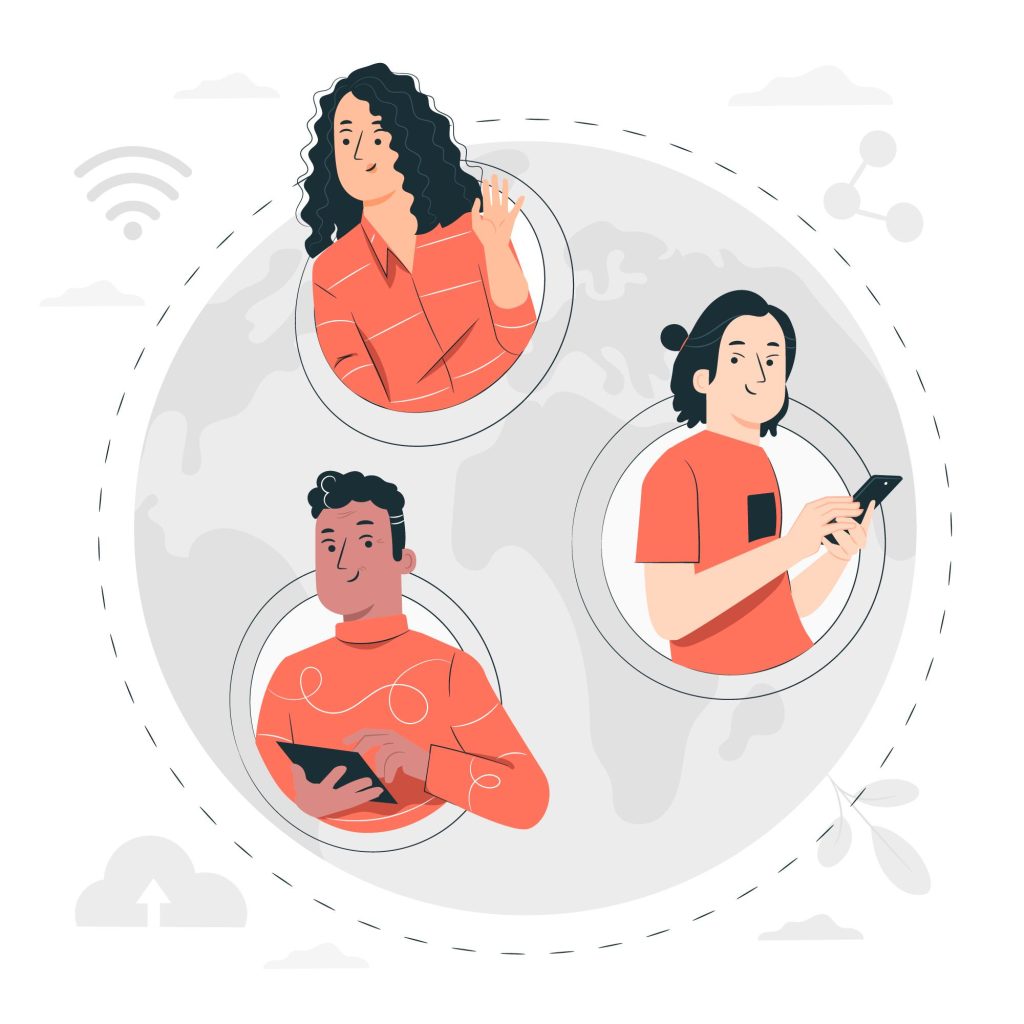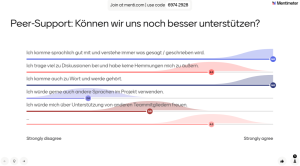Tackling Tough Topics and Controversiality Through VE: Crafting Brave Virtual Spaces
Teaching Goals:
- You are familiar with the concept of unintended consequences, controversiality, and socio-emotional competences in the context of virtual exchange.
- You are familiar with approaches to designing and facilitating curiosity-driven discussion spaces to navigate controversial issues, including the ‘Brave Spaces’ approach (Arao/Clemens 2013).
- You can select and use literary texts to develop cultural competences, including changing perspectives, gaining knowledge about global issues, and fostering empathy.
1. Introduction
“I was aware that my worst nightmare is a reality for very many people, but it was far away, and I could suppress it. […] I see intelligent women sitting in their apartments […] while the neighboring village is being bombed.” (VE participant, Germany)

A central advantage of virtual exchange (VE) is that it can connect teachers and students across vast geographic distances – even while some participants may find themselves in dire circumstances. This can include times of political upheaval, environmental disasters, or armed conflict. While conducting any project under such circumstances is challenging, VE projects can provide access points to directly engage with affected people. Instead of (only) talking about the people you hear about on the evening news, the idea – and opportunity – is to talk to them. Since VE is frequently considered as a pedagogical approach broadly capable of fostering key cultural competences – including critical thinking skills, empathy, and the ability to take over different perspectives (Hauck 2019, 2023; O’Dowd 2019) –, VE practitioners should not be discouraged from addressing complex and controversial issues.
Ideally, you deliberately choose to connect with partners finding themselves in such situations, which would allow for adequate preparation time. However, VE projects may also experience sudden disruptions originating in a specific local context. This is the starting point of this learning module.
In April 2021, we conducted a four-way VE project between pre-service teachers (PSTs) of English as a Foreign Language (EFL) located in Brazil, Germany, Israel, and Türkiye. The quote above stems from a participant in Germany, reporting on their experiences working with students at different locations in Israel. The core idea of the project was to have the students design language learning tasks in transnational teams that explicitly deal with the Sustainable Development Goals (SDGs) of the United Nations (UN). In their teams, they were tasked with investigating ‘global issues’ considered relevant by all team members (Krengel 2021). What we did not expect was that a regional conflict with global ramifications would flare up within the first weeks of the project: On 6 May, Palestinian protests in response to anticipated evictions in illegally-occupied East Jerusalem contributed to sparking the 2021 Israel–Palestine crisis (Frantzman 2021, Krengel/Paasche 2022).
While continuing project work during an active conflict is likely difficult for anyone, the specific situation proved particularly difficult to handle for participants located in Germany. Frequently associated with the idea of Staatsräson, Germany’s relationship to the State of Israel, rooted in historical responsibility (Groves 2024), affected the ways in which students in Germany felt capable of engaging in conversations about the conflict. Additionally, a frequent worry was whether students and teachers knew enough to engage in well-informed discussions. Following Arao and Clemens, this learning module subscribes to the idea that venturing beyond comfort zones and trying to understand conflicting perspectives can lead to “some of the richest learning” (2013: 143). Therefore, this specific context will act as a guiding example to illustrate fruitful learning opportunities.
Whether you plan to face difficult topics and controversiality head-on, or if you merely want to be better equipped to handle unintended consequences, this learning module strives to support you. While implementing some of the activities requires adequate preparation time, others can be put into practice instantaneously.
1. Reflection Activity: Facing controversiality
Briefly reflect on your readiness to face unforeseen disputes and controversial debates in a VE project. If you already have specific partner institutions in mind, use this as an opportunity to reflect on your cultural competences as they relate to your prospective partners.
- In particular, how much do you think you know about your partners’ cultural backgrounds?
- Consider if there might be specific controversial issues that might be difficult to navigate due to cultural differences.
All illustrations on this page by @storyset (https://www.freepik.com/author/stories)
This work © 2025 by Fabian Krengel is licensed under CC BY-NC-ND 4.0
